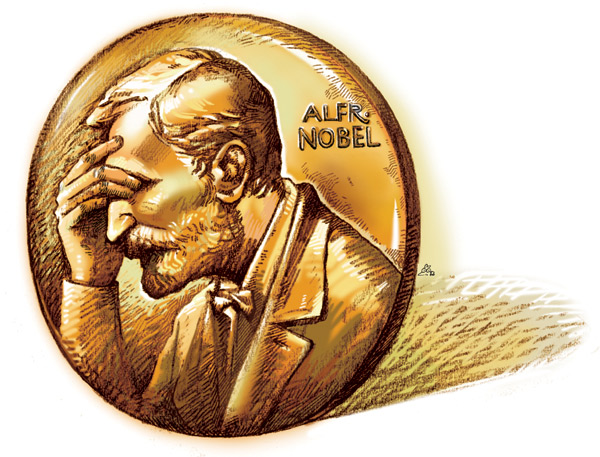Once the world’s highest recognition for peace, the Nobel Peace Prize is now a tarnished relic of its former self—confused, compromised, and increasingly irrelevant. What was once a beacon of neutrality and moral clarity has devolved into a cocktail of virtue-signaling, corporate pandering, and geopolitical gamesmanship. The rot set in quite visibly with the 2009 award to Barack Obama, just months into his presidency. The man himself admitted he had done nothing to deserve it. That moment—dressed up as “hope” and “symbolism”—marked the beginning of the prize’s drift from achievement to aspiration, from rewarding results to endorsing political theatre. Since then, the Nobel Committee’s decisions have careened from bizarre to blatantly politicized. Consider the recent whispers around Pakistan’s Field Marshal Asif Munir recommending Donald Trump—a man who once called for bombing Iran “into oblivion”—for the Peace Prize. This isn’t satire. It’s the state of Nobel in 2025. When an unelected army chief of a quasi-democracy bypasses his own elected prime minister and proposes a foreign leader—loathed by many in Pakistan’s own Shia community—as a global symbol of peace, one must ask: has the committee lost all capacity for judgment, or is it simply choosing to ignore it? It’s not just the Peace Prize that’s under fire. The science categories, once sacrosanct, now invite suspicion. The 2023 Nobel Prize in Medicine, awarded to Drew Weissman for mRNA vaccine development, was undoubtedly about a breakthrough technology. But behind the shiny plaque looms the shadow of Pfizer, Moderna, and the billions poured in by governments and reaped by private pharmaceutical giants. What was once a reward for pure innovation now reeks of profit-aligned endorsement. Weissman’s deep ties to Big Pharma might not negate his contribution, but they raise a legitimate question: when money and science are so intertwined, can any award be truly impartial?

Investigative voices like Sayer Ji have further exposed how several Nobel Laureates have vested interests in pharma and biotech. Many of them aggressively opposed Robert F. Kennedy Jr.’s candidacy for U.S. Health Secretary—not necessarily over his qualifications, but for his challenges to the vaccine industry’s practices. Ji alleges these scientists’ financial stakes compromise their stance. If true, their Nobel credentials become shields for business interests, not science. Take the case of Ivermectin—a drug that won the 2015 Nobel for its creators and was briefly explored during the COVID-19 pandemic. Its rapid dismissal by the medical establishment, coupled with the eerie silence from the Nobel community, raised eyebrows. Why did the same scientific elite who once celebrated the drug suddenly treat it like quackery? The answer, critics argue, lies in the billions tied up in vaccine rollouts. Alternative treatments were bad for business—and, by extension, bad for those whose reputations were tied to it. Even the European Union received the Peace Prize in 2012—a strange choice for a bloc that struggled with the refugee crisis, dithered on the Ukraine issue, and imposed punishing austerity on member states. The award looked less like a reward for peace and more like a desperate attempt to glue together a fractured bureaucracy. And now, to top it all, we have despotic regimes and military generals nominating controversial figures like Trump, while the Nobel Committee nods politely. What next—Kim Jong-un for climate action? The Nobel Peace Prize, and arguably the Nobel brand at large, is losing its gravitas. It’s slide from recognising concrete accomplishments to anointing politically expedient figures is not just sad—it’s dangerous. When the world’s top honors become playthings of political correctness or corporate convenience, they lose their moral compass. Perhaps it’s time to ask: Does the world still need the Nobel Peace Prize? Or has it become just another glittering gong in the echo chamber of elite self-congratulation? If it continues on this path, Alfred Nobel might want to return from the grave and reclaim his dynamics.




